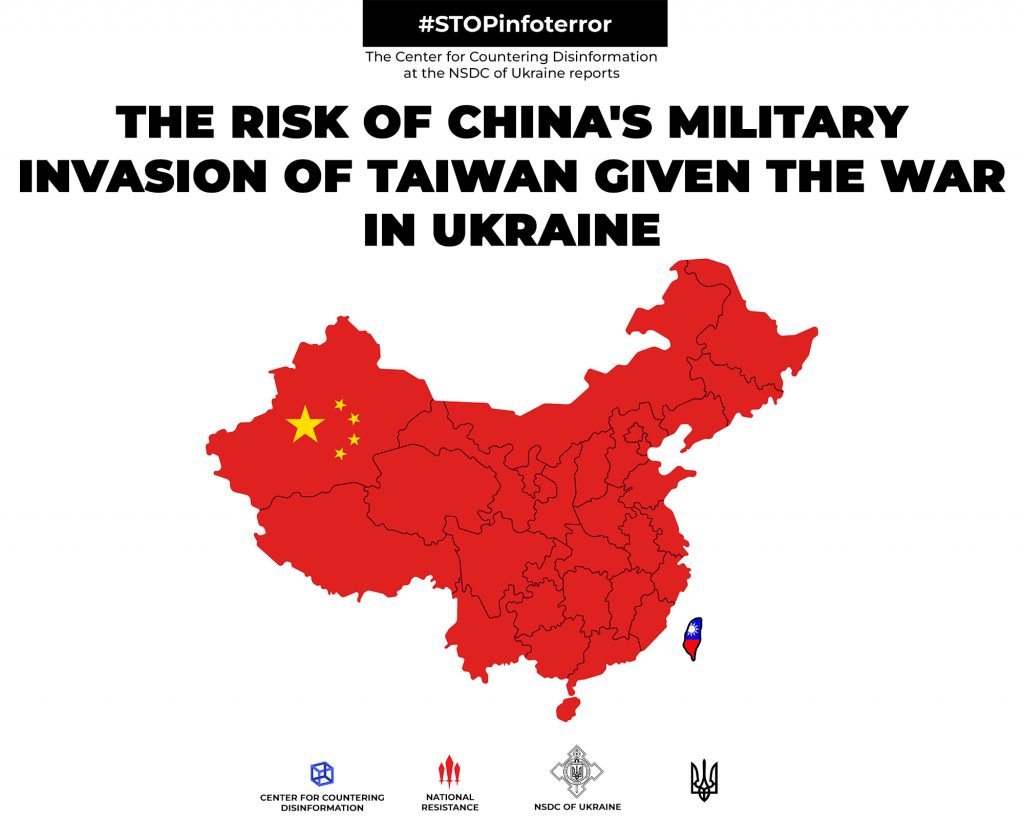TAIWAN RISKS: WILL CHINA DARE TO LEAP?
The strategic importance of Taiwan in the struggle for world leadership between China and the United States is not only in the location of this island, which allows you to keep control over crucial maritime trade routes.
Taiwan is also a leading global technology center today: Taiwanese companies supply 63% of the world’s semiconductors, compared to 12% for the US. Taiwan Semiconductor Manufacturing Co (TSMC) solely manufactures more than half of the world’s chips and about 90% of modern processors.
Taiwan could potentially host long-range missiles capable of attacking China’s important industrial centers. Moreover, Taiwan is the cornerstone of the US ideological, diplomatic, and military strategy in Asia. Therefore, the question of whether the United States will go to war with China over Taiwan worries all of Asia. Thus the US geopolitical stakes in Taiwan are probably much higher than in Ukraine.
China’s military presence on the islands of the South China Sea, which it considers its internal waters, is increasing every year and could potentially become a zone of international conflict.
There are similar geopolitical features between Taiwan and Ukraine. In particular, significantly lower military potentials in relation to the aggressor and the absence of official military allies, which requires independent resistance to aggression. Also, the impossibility of UN mediation in conflicts involving China or russia due to their influence in the UN Security Council. Both countries have a big neighbor that does not recognize their independence. Taiwan and Ukraine are skeptical of their neighbors’ claims about “one nation.” China systematically engages in informational, diplomatic, and military provocations towards Taiwan, as did russia in previous years before a full-scale invasion.
The armies of Ukraine and Taiwan are significantly smaller than those of russia and China. In particular, the Chinese army is the largest in the world. It has more than 2 million military personnel and approximately the same number of reservists, while Taiwan has 163,000 military personnel and 1.5 million reservists. In addition, the Chinese army has a significant technological advantage. Taiwan’s military doctrine is based on the expectation of foreign support during short-term independent resistance.
After russia invaded Ukraine, a working group was formed in Taiwan to study the tactics of waging war in Ukraine, the results of which will be reflected in Taiwan’s new military doctrine. In addition, Taiwan increases the military budget, changes the term of service in the army from 4 months to one year, tests Javelin anti-tank systems, and prepares the island’s population for survival during military operations.
At the beginning of the russian-Ukrainian war, the USA immediately declared the impossibility of sending its troops to defend Ukraine. In the event of a conflict between China and Taiwan, it is still unclear whether the United States will intervene with armed forces or limit itself to the supply of weapons. The Chinese leadership does not rule out a possibility of an actual US military intervention on the side of Taiwan, and this uncertainty about the US position deters China.
Regarding the russian invasion of Ukraine, there are no contradictions in the international community regarding the interpretation of this war. The degree of sanctions against russia may vary in different countries, but all nations are united in the opinion that russia has committed a severe violation of international law.
Ukraine is an independent sovereign state recognized by the whole world, and Taiwan is considered a self-proclaimed state whose territory de jure belongs to China. Only one and a half dozen small island states officially recognize Taiwan’s independence. Others, including Ukraine, maintain contacts on an informal level.
In the 70s and 80s of the last century, more than 100 countries broke diplomatic relations with Taiwan and established them with the People’s Republic of China. In 1979, the US established diplomatic ties with the PRC, agreeing to continue supporting Taiwan in the security sphere. In addition, the US has a law on relations with Taiwan that requires the US to supply Taiwan with military equipment and materials necessary to maintain a sufficient self-defense potential.
Unlike in Ukraine, the Chinese leadership can claim that any Chinese-initiated invasion of Taiwan is necessary to suppress anti-government activities in one of the country’s regions. Therefore such actions do not violate international law.
The Chinese authorities officially deny drawing parallels between Ukraine and Taiwan. Beijing’s official position is that there is only one China in the world, and Taiwan is an integral part of it. The Taiwan issue has been unresolved since the Civil War, and choosing an approach to resolve it is China’s internal matter.
The 20th Congress of the Communist Party of China will be held in China this fall, where Xi Jinping is likely to be re-elected for a third term. Therefore, he could potentially implement the “Taiwan is Ours” project (russian propagandists used the same pharase “Crimea is ours” in 2014 when russia annexed Crimea).
Nowadays, the Chinese authorities are using the war in Ukraine for internal propaganda, spreading the idea of inciting conflicts by the US and NATO.
Also, closely monitoring the military aggression, Beijing intends to modernize its army and is creating a strategic food stock. Chinese massive grain purchases have already led to a significant increase in its price on the world market.
Global condemnation of russian military aggression against Ukraine by the majority of world democracies and harsh sanctions against russia came as a surprise not only to the Kremlin but also to Beijing. However, given the number of these sanctions against russia, China understands that in the event of an invasion of Taiwan, the same may happen to China as well.










